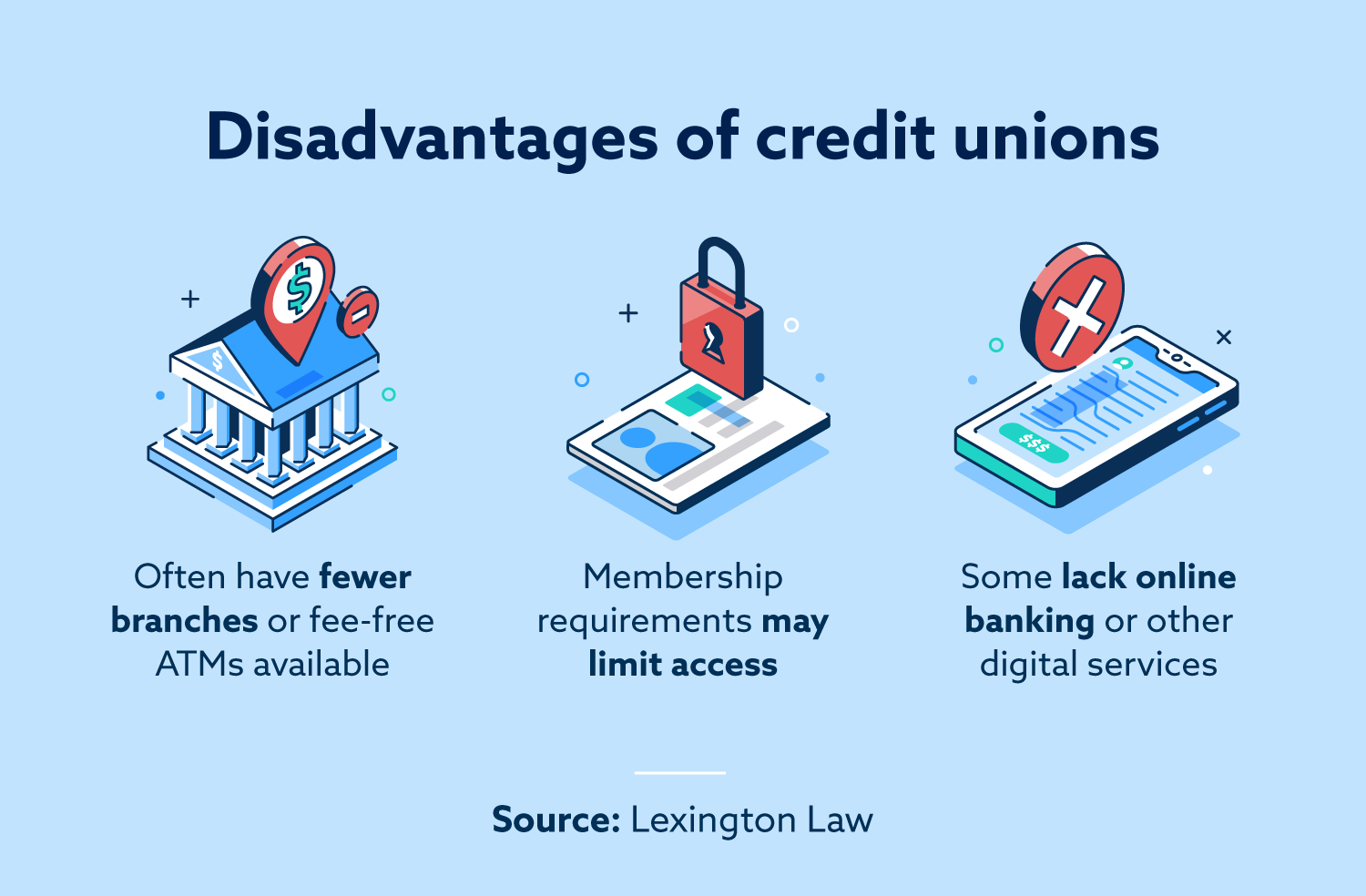The Ultimate Guide to Understanding Cooperative Credit Union

Credit score unions stand as one-of-a-kind economic entities, rooted in concepts of shared support and member-driven operations. As we navigate via the complexities of credit history unions, an informative journey awaits to drop light on these member-focused organizations and exactly how they vary from typical banks.
What Are Cooperative Credit Union?
Credit rating unions are member-owned banks that use a series of banking solutions to their participants. Unlike conventional banks, lending institution run as not-for-profit organizations, meaning their main focus gets on offering their participants rather than optimizing profits. Participants of a credit rating union typically share a typical bond, such as helping the very same company, belonging to the very same community, or belonging to the same company.
Among the vital benefits of lending institution is that they commonly use greater interest prices on financial savings accounts and reduced rate of interest rates on finances compared to banks. Federal Credit Union. This is because lending institution are structured to benefit their members straight, permitting them to hand down their incomes in the type of much better rates and fewer fees. Furthermore, lending institution are recognized for their individualized client service, as they prioritize constructing connections with their participants to comprehend their unique economic requirements and objectives
History and Evolution of Lending Institution
The roots of member-owned financial cooperatives, known today as lending institution, trace back to a time when neighborhoods looked for choices to conventional banking organizations. The concept of debt unions come from the 19th century in Europe, with Friedrich Wilhelm Raiffeisen often attributed as the pioneer of the participating banking activity. Raiffeisen established the very first identified cooperative credit union in Germany in the mid-1800s, stressing neighborhood assistance and self-help principles.
The advancement of credit rating unions proceeded in North America, where Alphonse Desjardins established the initial credit score union in Canada in 1900. Shortly after, in 1909, the first united state lending institution was developed in New Hampshire by a group of Franco-American immigrants. These early credit rating unions operated on the essential concepts of common aid, autonomous control, and participant possession.
In time, lending institution have grown in appeal worldwide as a result of their not-for-profit framework, concentrate on offering participants, and supplying affordable economic product or services. Today, credit unions play a vital role in the financial industry, offering obtainable and community-oriented banking choices for services and people alike.

Subscription and Qualification Requirements
Membership at a credit history union is normally restricted to individuals meeting particular eligibility criteria based on the institution's beginning concepts and regulative demands. Some credit score unions might only serve individuals that work or live in a specific area, while others may be customized to staff members of you can try this out a specific business or members of a particular association.
In addition, credit unions are structured as not-for-profit companies, meaning that their primary goal is to serve their participants instead of produce revenues for shareholders. This concentrate on member service usually converts right into more individualized attention, lower costs, and competitive rates of interest on financings and cost savings accounts. By satisfying the qualification requirements and becoming a member of a cooperative credit union, individuals can access an array of monetary items and services customized to their certain needs.
Providers and Products Used
One of the vital elements that sets credit scores unions apart is the diverse variety of monetary services and items they use to their members. Credit scores unions commonly give conventional financial solutions such as savings and inspecting accounts, lendings, and debt cards. Members can additionally benefit from investment solutions, including pension and economic planning help. Many cooperative credit union provide affordable rates of interest on interest-bearing accounts and fundings, along with reduced costs contrasted to traditional banks.
Furthermore, lending institution usually give hassle-free online and mobile financial choices for members to easily handle their finances. They might supply advantages such as shared branching, enabling participants to access their accounts at other lending institution across the country. Some lending institution also provide insurance products like home, auto, and life insurance coverage to assist members shield their assets and loved ones.

Benefits of Financial With Credit Rating Unions
When considering monetary institutions, discovering the advantages of financial with credit scores unions discloses unique advantages for members seeking personalized service and affordable prices. Unlike huge banks, debt unions are member-owned and prioritize structure strong partnerships with their members. Generally, banking with a debt union can give an extra individualized, affordable, and member-centric economic experience.
Conclusion
In final thought, debt unions stand out as member-owned economic establishments that prioritize serving their participants over making best use of profits. With beginnings dating back to 19th century Europe, credit rating unions follow concepts of mutual help and participant ownership.
Credit score unions are member-owned economic organizations that offer an array of banking solutions to their members. The concept of credit score unions come from in the 19th century in Europe, with Friedrich Wilhelm Raiffeisen frequently attributed as the pioneer of the participating banking motion.The evolution of debt unions proceeded in North America, where Alphonse Desjardins established the very first credit scores union in Canada in 1900. Credit scores unions typically give standard banking solutions such as cost savings and checking accounts, finances, and credit score cards.When taking into consideration monetary organizations, exploring the benefits of financial with i thought about this credit score unions exposes distinct advantages for members looking for tailored service and affordable rates.